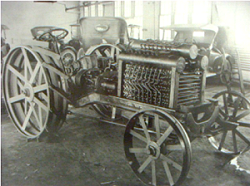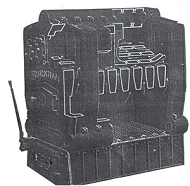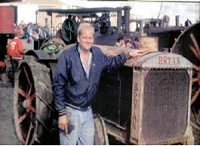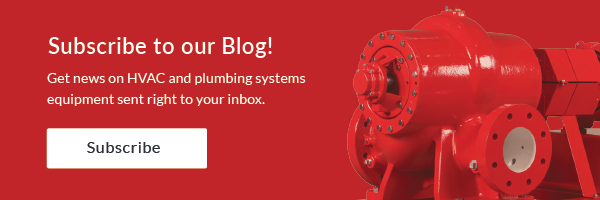| Maybe you are all clear where the term Boiler HP came from, but I wasn’t, so I began my quest. I quickly found that one Mechanical HP = 33,000 ft-lb/min and one Boiler HP = 33, 475 BTUH and the similarity of these two number, without units, got my interest.
It appears that James Watt needed a marketing piece to sell his steam engines and people of the time could relate to horses. Watt calculated how much work a horse would do turning a mill wheel, which he estimated at 33,000 ft-lbf/min. This was a controversial number, some of his peers thought this too high a number, I guess all horses are not created equal, but Jim ultimately won out. That cleared up mechanical horsepower in my mind. But what about boiler horsepower?
Boiler Horse Power was first extensively used in Philadelphia around 1876, where steam engines were being tested. They calculated the average steam consumption per output mechanical horsepower. They established that 34.5 lb of water was evaporated in one hour to make one mechanical Hp in the steam engines, and Boiler Horsepower was defined by ASME in 1884 as “the thermal output required to evaporate 34.5#/hr of water from and at 212°F.
|
Disclaimer: R. L. Deppmann and it’s affiliates can not be held liable for issues caused by use of the information on this page. While the information comes from many years of experience and can be a valuable tool, it may not take into account special circumstances in your system and we therefore can not take responsibility for actions that result from this information. Please feel free to contact us if you do have any questions.




